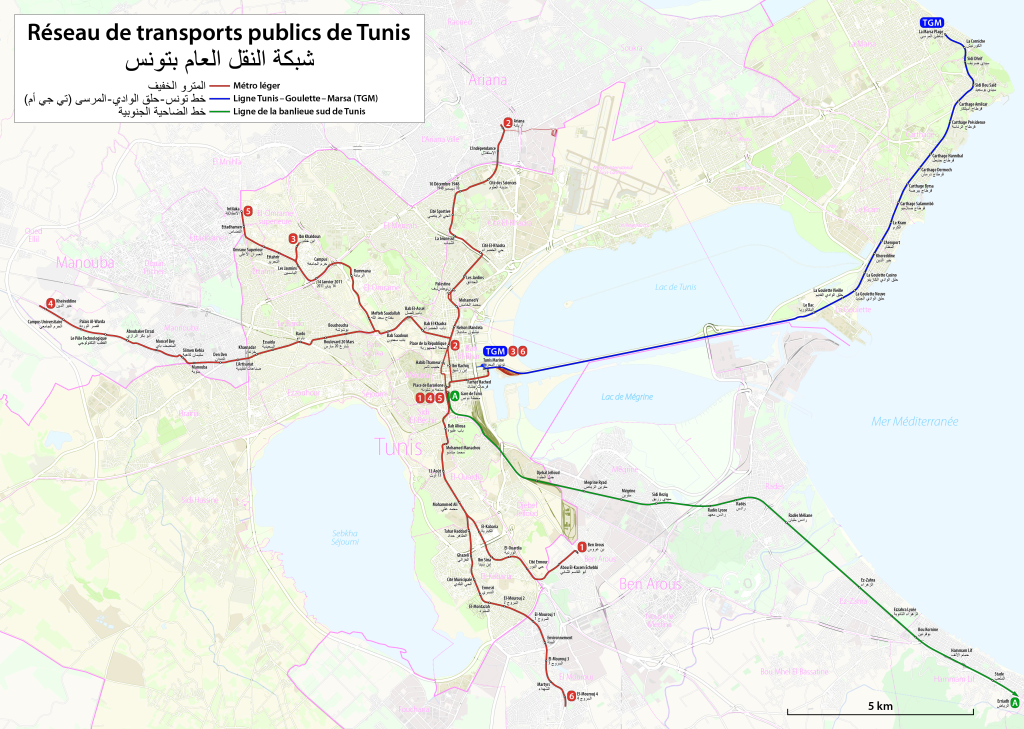Ride-hailing apps like Yassir (https://yassir.com/tunisia), Heetch (https://www.heetch.com/en), inDrive (https://indrive.com/), and the local platform Amigo (https://www.elluminatiinc.com/customer-success-stories/amigo/) are popular and user-friendly. App-based rides offer fare transparency and added security via booking logs.
The light metro in Tunis, operated by TRANSTU, is an affordable and efficient way to travel across the city and avoid traffic. It consists of six lines covering about 45 km with 66 stations, linking central hubs like Tunis Marine and Place de Barcelone with key suburbs such as Ariana and El Mourouj 4 (line 6). Trains run frequently, every 4–6 minutes during peak times and every 8–12 minutes off-peak with low fares based on distance (starting around 0.500–0.650 TND for central trips).

Tunis buses, operated by TRANSTU, are an affordable option for budget travellers, with fares starting around 1.000 TND (approximately 0.35 EUR) for short trips. They cover the entire city but can become extremely crowded during rush hours. Tickets can be purchased at the stop or on board, offering a cost-effective way to travel. However, these buses are not particularly user-friendly for tourists, as routes are often poorly displayed, and rides can be uncomfortable and suitable primarily for local commuters.